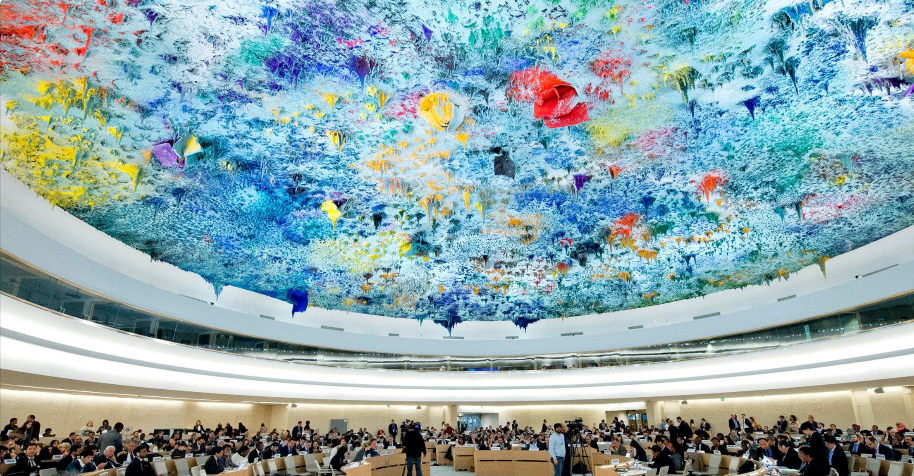UN experts warn of ‘impossible situation’ facing the people of Sudan

UN Human Rights Council in Geneva, Switzerland (Photo: OHCHR)
United Nations experts condemned the escalating violence against civilians in Sudan, warning that the humanitarian crisis resulting from the conflict between the Sudan Armed Forces (SAF) and the Rapid Support Forces (RSF) has reached catastrophic levels.
A group of UN Special Rapporteurs* lamented that the ongoing conflict has displaced 11 million people, over half of them children, in a situation marked by severe violations of international humanitarian and human rights laws. “The people of Sudan are facing an impossible situation, caught between conflict, famine, crime, disasters, and disease.”
In a statement yesterday, the experts said that “the indiscriminate use of artillery, airstrikes, and explosive weaponry by all parties provokes immediate casualties and exposes civilians to the long-term threat of unexploded ordnance.
“Siege tactics such as those deployed against El Fasher, and both parties’ draconian restrictions on humanitarian aid, occupation or destruction of agricultural land, and attacks against humanitarian workers have fuelled a man-made famine.”
Expressing dismay over the direct targeting of civilians, the experts added, “We strongly condemn the RSF’s latest attacks in El Gezira. We have received disturbing reports of civilians subjected to forced displacement, torture and ill-treatment, summary executions, and arbitrary detention, based on their ethnicity. This adds to a growing pattern of atrocities against ethnic minorities that may amount to crimes against humanity.”
The experts voiced particular concern over RSF’s systematic use of sexual violence as a weapon of war, citing cases of rape, sexual slavery, forced marriage, and human trafficking under conditions of extreme violence that amount to torture.
The statement calls on the SAF and RSF to cease attacks on civilians, ensure unfettered access to humanitarian aid, and urged both sides to work towards a ceasefire. It also appealed to the international community to support these efforts through mediation, diplomacy, and funding for humanitarian aid, while halting the flow of illicit arms to the warring parties.
*According the UN Office of the High Commissioner for Human Rights (OHCHR) website, Special Rapporteurs “are part of what are known as the Special Procedures of the Human Rights Council.
“Special Procedures, the largest body of independent experts in the UN Human Rights system, is the general name of the Council’s independent fact-finding and monitoring mechanisms that address either specific country situations or thematic issues in all parts of the world.
“Special Procedures experts work on a voluntary basis; they are not UN staff and do not receive a salary for their work. They are independent from any government or organization and serve in their individual capacity.”











 and then
and then